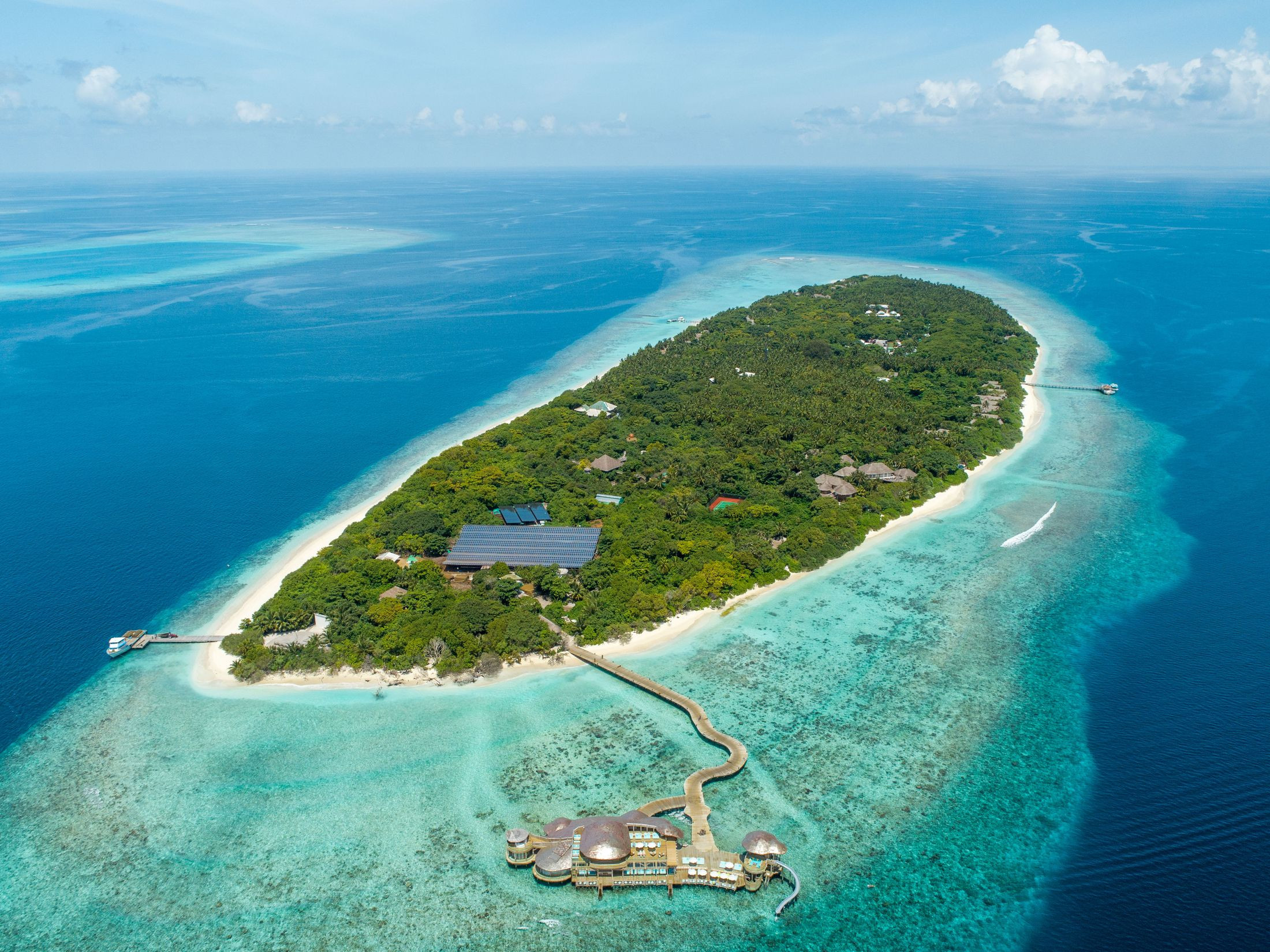

Soneva's Solar Surge : Leading the Way in Sustainable Luxury
Wednesday 5th of June 2024
Soneva, the award-winning luxury resort operator known for its commitment to sustainability, is making significant strides in renewable energy. In 2024, Soneva Fushi in the Baa Atoll and Soneva Jani in the Noonu Atoll are set to derive nearly 50% of their energy needs from solar power. This ambitious target is part of Soneva's ongoing efforts to lead the hospitality industry towards a zero-carbon future.
The new photovoltaic (PV) installations at both resorts mark a significant increase in solar energy capacity. Previously, Soneva Fushi's solar system supplied around 12% of the resort's energy. Thanks to a USD 10 million funding boost from Germany's Aareal Bank in December 2022, Soneva has expanded its solar infrastructure significantly. Soneva Fushi now boasts 2.55 MWp (megawatt peak) of solar power and 2.7 MWh (megawatt hours) of battery capacity. Similarly, Soneva Jani has installed 2.75 MWp of solar power and 2.0 MWh of battery storage.
"Pioneering sustainability in the luxury hospitality industry since 1995, Soneva is committed to transitioning towards a zero-carbon future," says Bruce Bromley, Chief Financial Officer and Deputy CEO at Soneva. "Our investment in solar energy is a testament to our dedication to sustainability and has significantly reduced our carbon footprint."
Soneva's solar initiative not only reduces its environmental impact but also contributes positively to its financial performance. The support from Aareal Bank has been instrumental in integrating these new energy systems with other renewable technologies, moving Soneva closer to its goal of fossil fuel-free operations.
Looking ahead, Soneva is exploring innovative solutions to maximize the use of solar energy. One such initiative is the potential installation of floating solar panels in the ocean around its island resorts. The new Soneva Secret 2024 resort, located in the remote Haa Dhaalu Atoll, is pioneering this technology. The floating solar panels at this resort are projected to cover nearly 90% of its energy load, complemented by an integrated ice storage system for air conditioning.
In addition to solar energy, Soneva is expanding its sustainability strategies, including rainwater harvesting and load shifting, to maximize renewable energy use. The company is also assessing alternative storage technologies, such as flow batteries and thermal storage, which offer longer lifespans and greater capacity for storing renewable energy.
"The financial sector plays a crucial role in the transition towards a carbon-free future," states Thomas Adaemmer, Managing Director and Head of Asia-Pacific at Aareal Bank. "At Aareal Bank, we embrace this responsibility and are pleased to see our joint efforts with Soneva contributing to sustainable development on multiple fronts."
Soneva's commitment to sustainability extends beyond its energy initiatives. The company continually seeks innovative ways to reduce its environmental footprint and promote sustainable practices within the luxury hospitality sector. From energy-efficient practices to plastic reduction strategies, Soneva is dedicated to preserving the natural beauty of the Maldives while offering guests a unique and luxurious experience.
In conclusion, Soneva's solar energy initiative represents a significant step forward in the hospitality industry's journey towards sustainability. By harnessing the power of the sun, Soneva Fushi and Soneva Jani are setting new standards for eco-friendly luxury. As the world increasingly embraces the need for environmental conservation, Soneva's innovative approach to renewable energy demonstrates what is possible when sustainability and luxury go hand in hand.